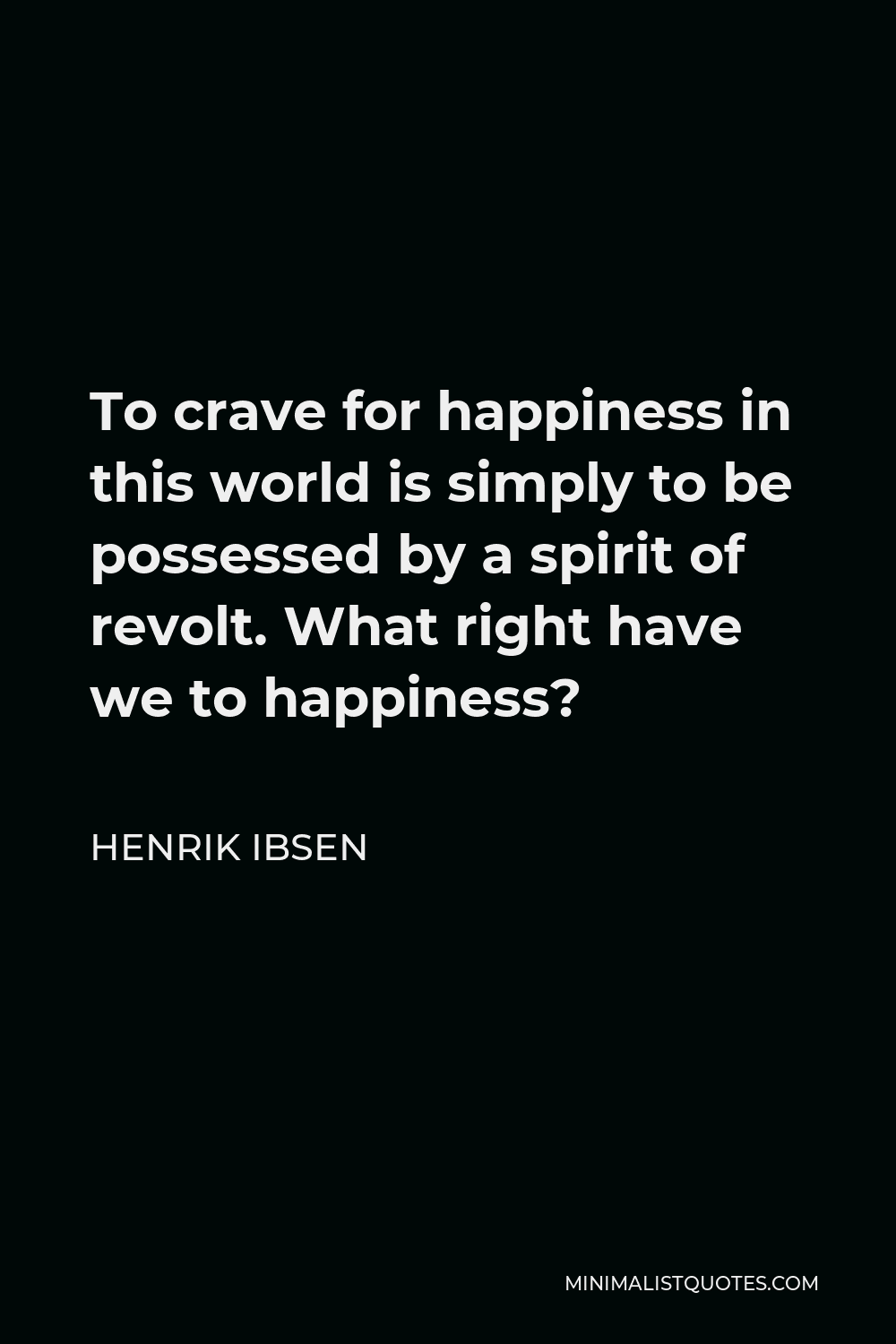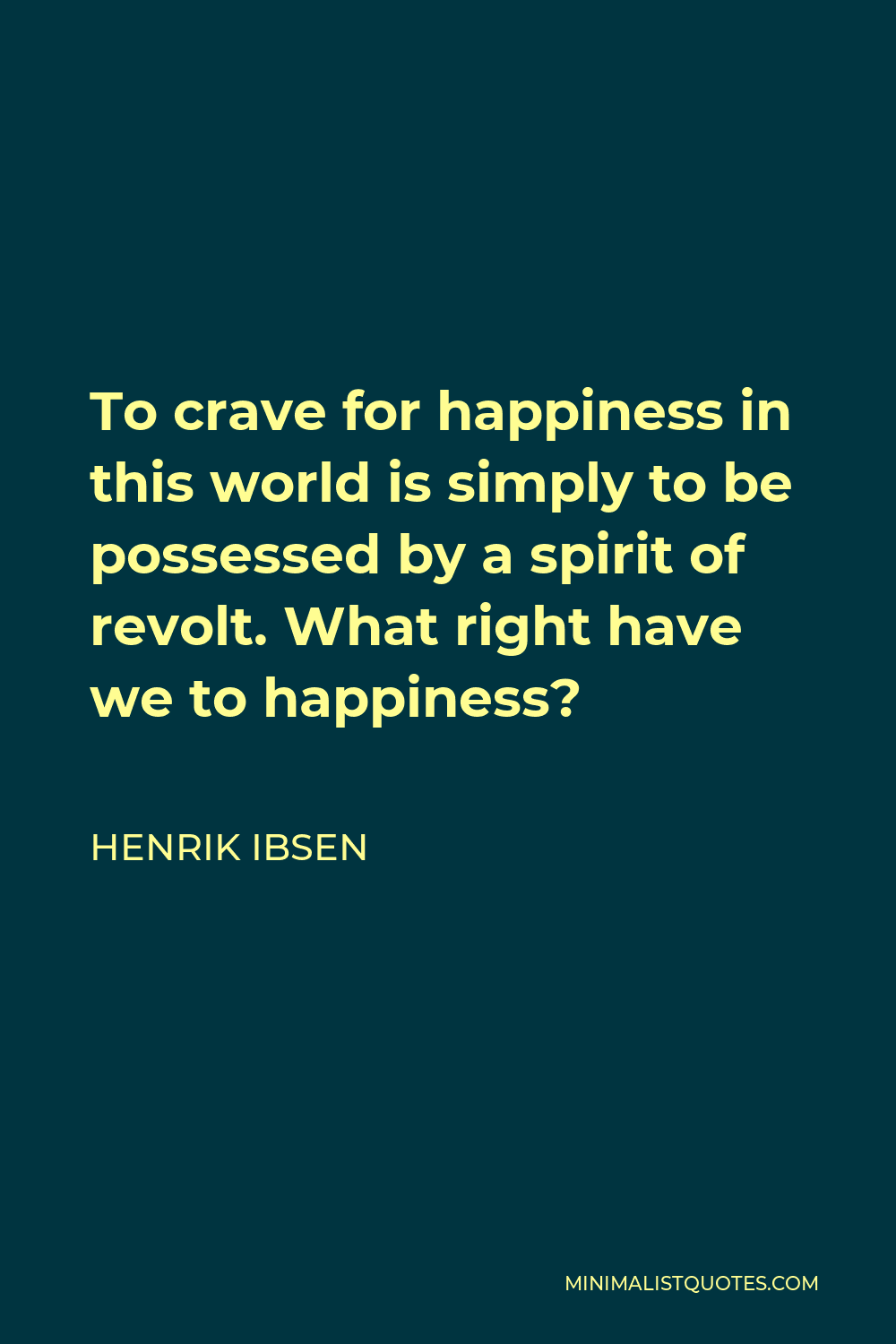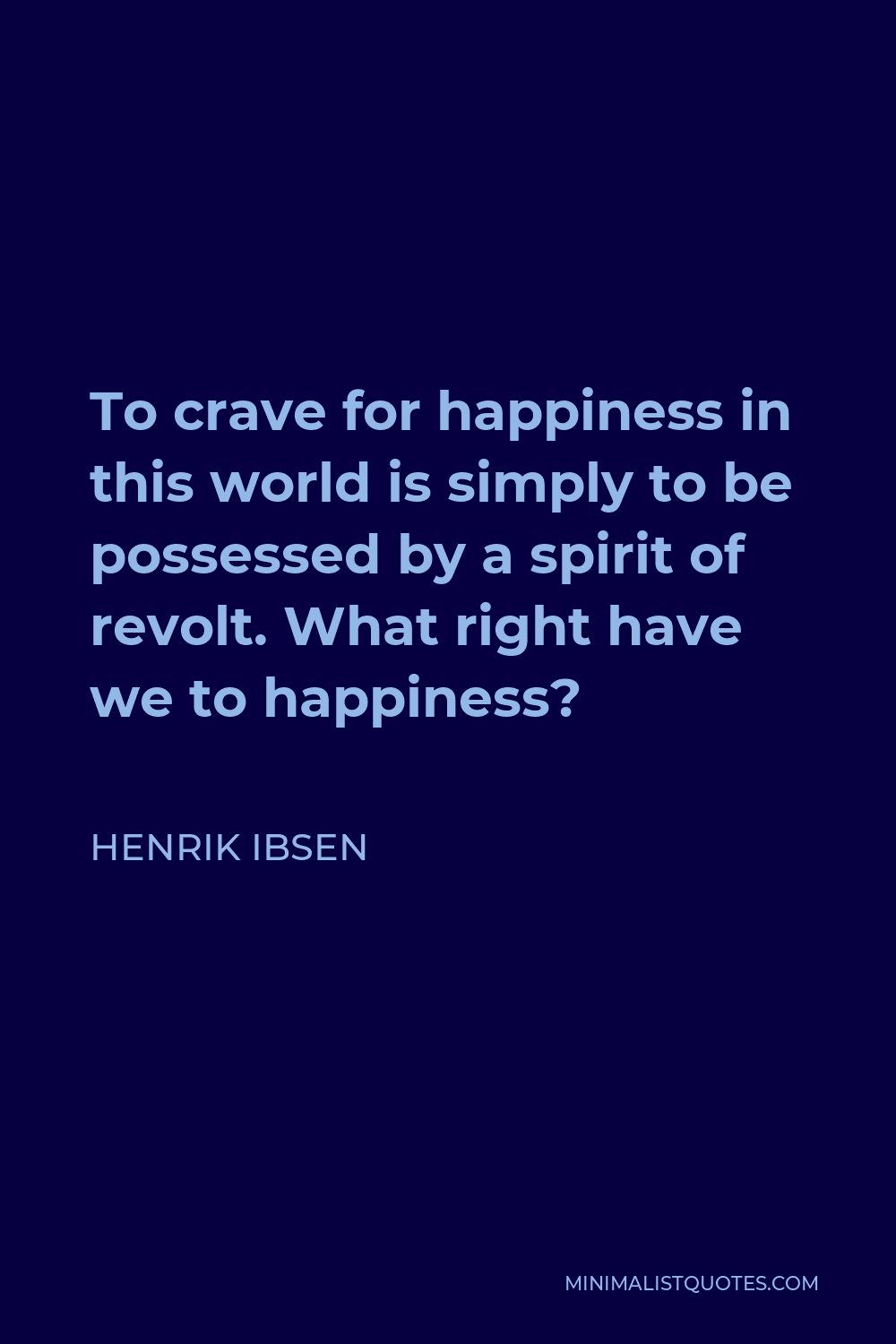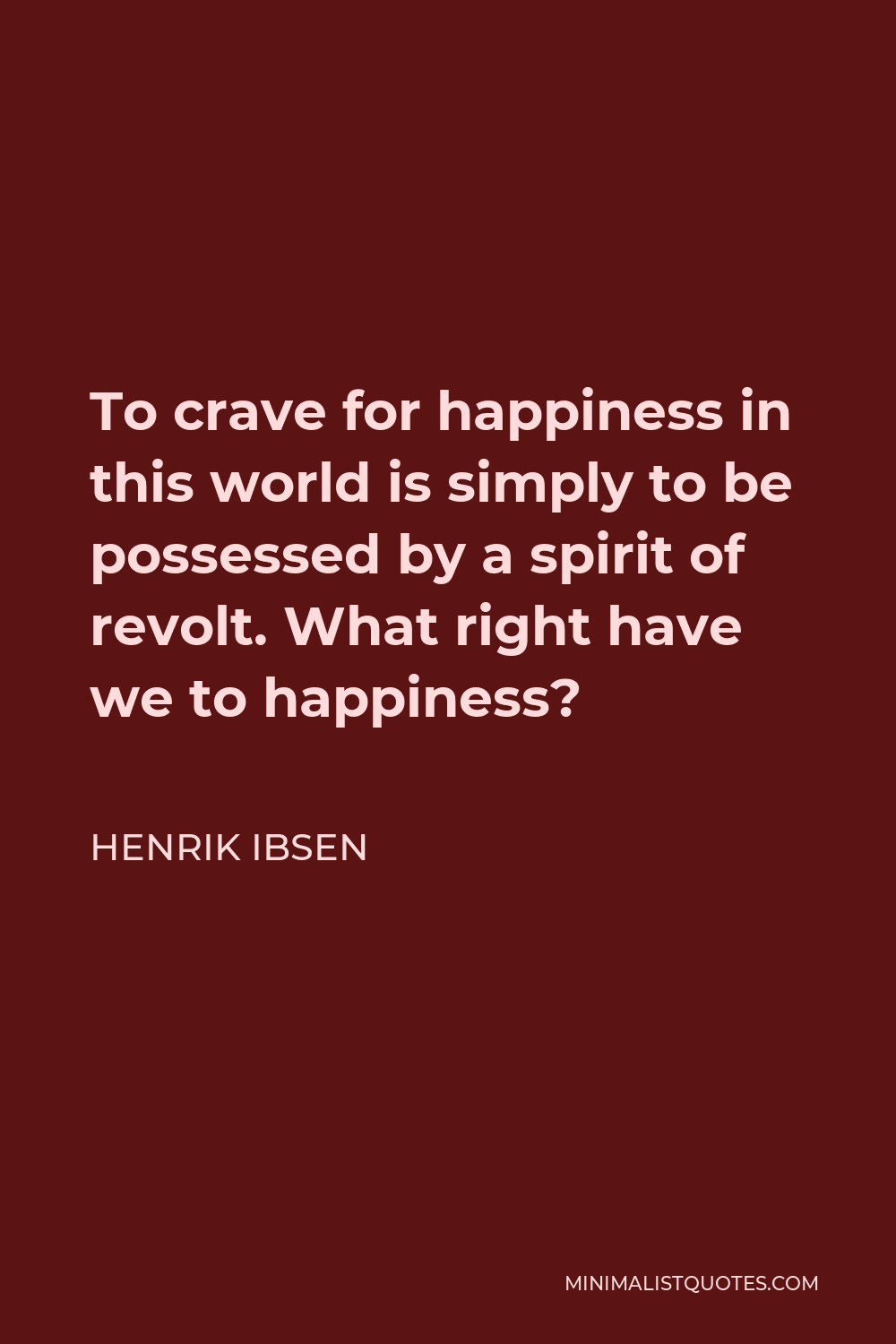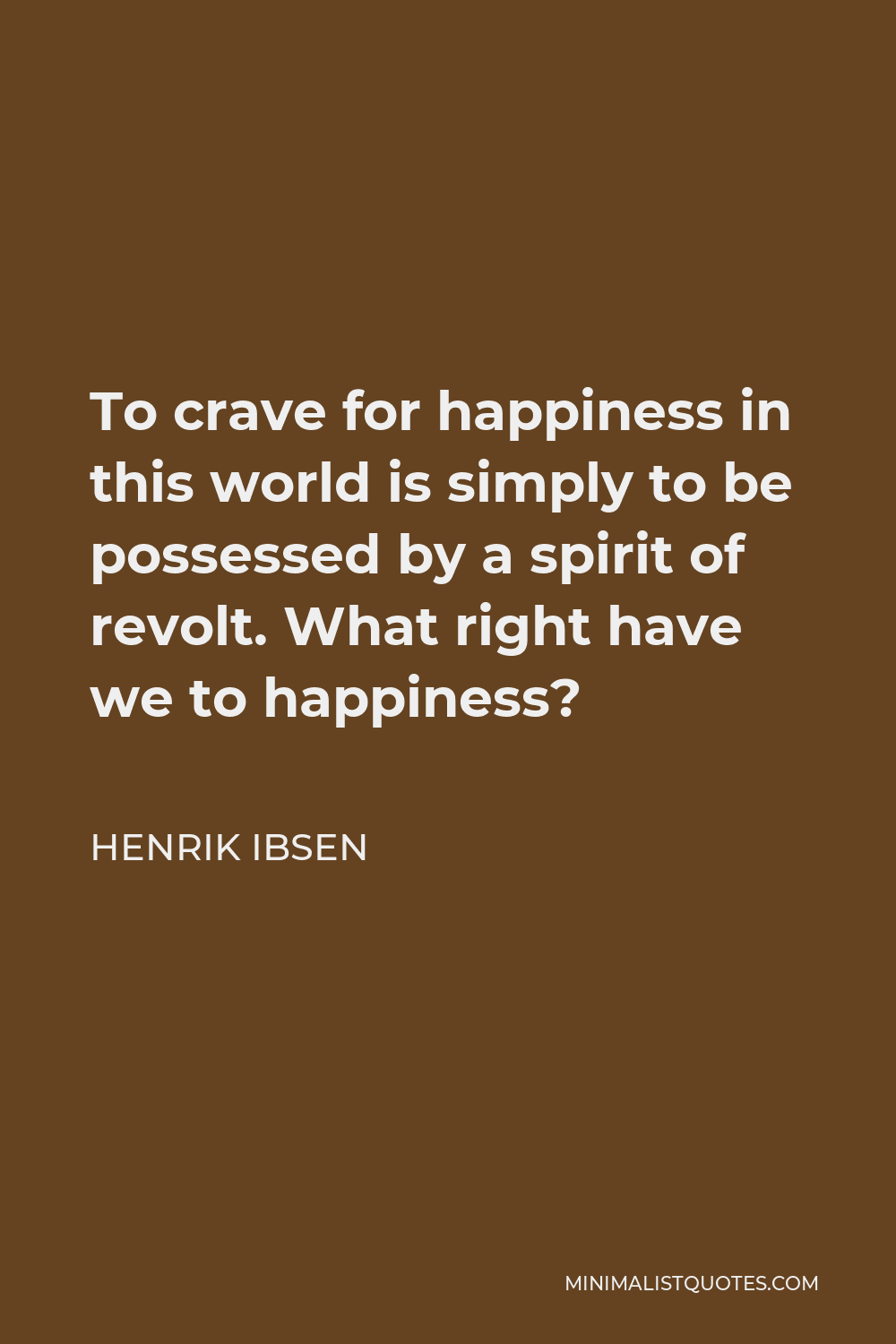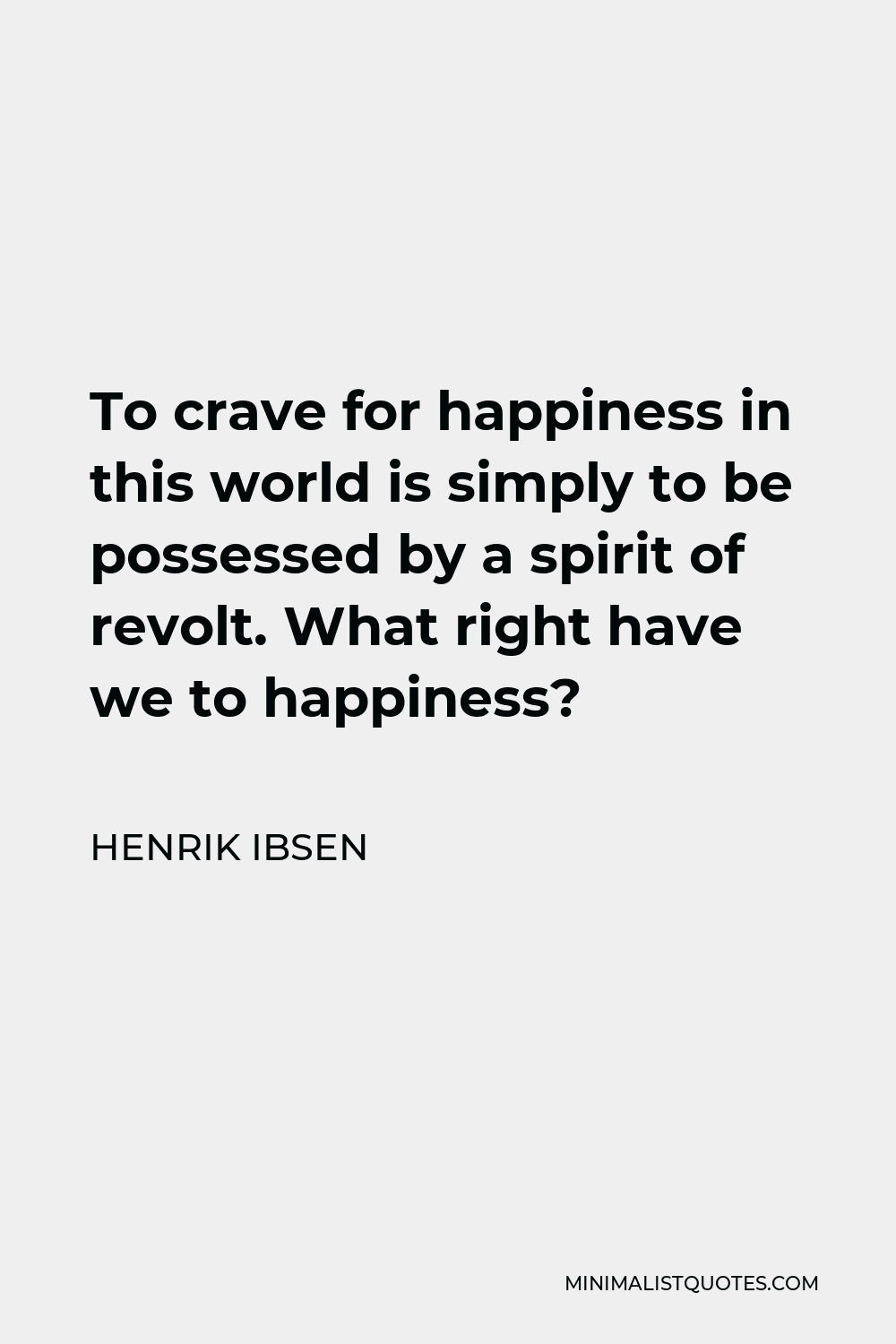Each bird must sing with his own throat.
HENRIK IBSENTo crave for happiness in this world is simply to be possessed by a spirit of revolt. What right have we to happiness?
More Henrik Ibsen Quotes
-







-





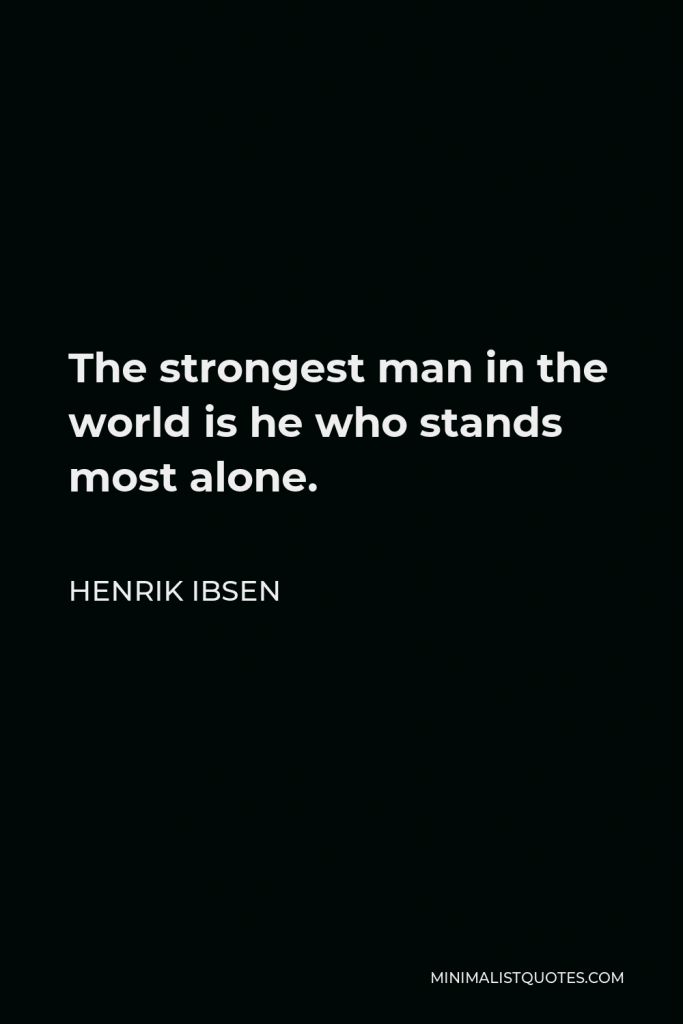

The strongest man in the world is he who stands most alone.
HENRIK IBSEN -







What ought a man be? Well, my short answer is ‘himself’.
HENRIK IBSEN -





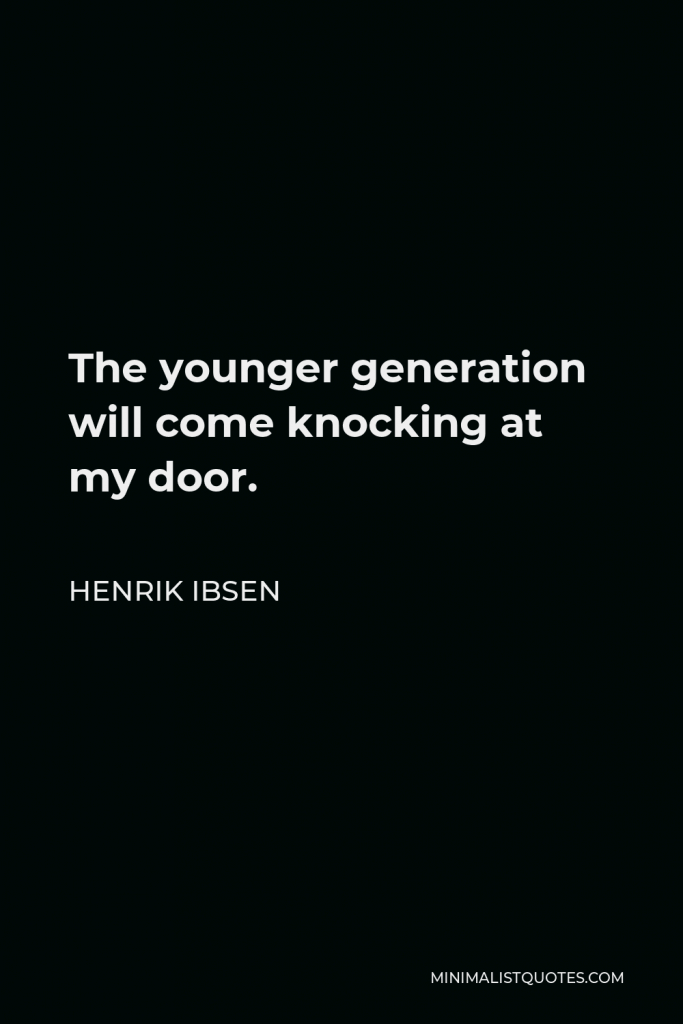

The younger generation will come knocking at my door.
HENRIK IBSEN -







Oh, life would be all right if we didn’t have to put up with these damned creditors who keep pestering us with the demands of their ideals.
HENRIK IBSEN -







So to conduct one’s life as to realize oneself-this seems to me the highest attainment possible to a human being. It is the task of one and all of us, but most of us bungle it.
HENRIK IBSEN -





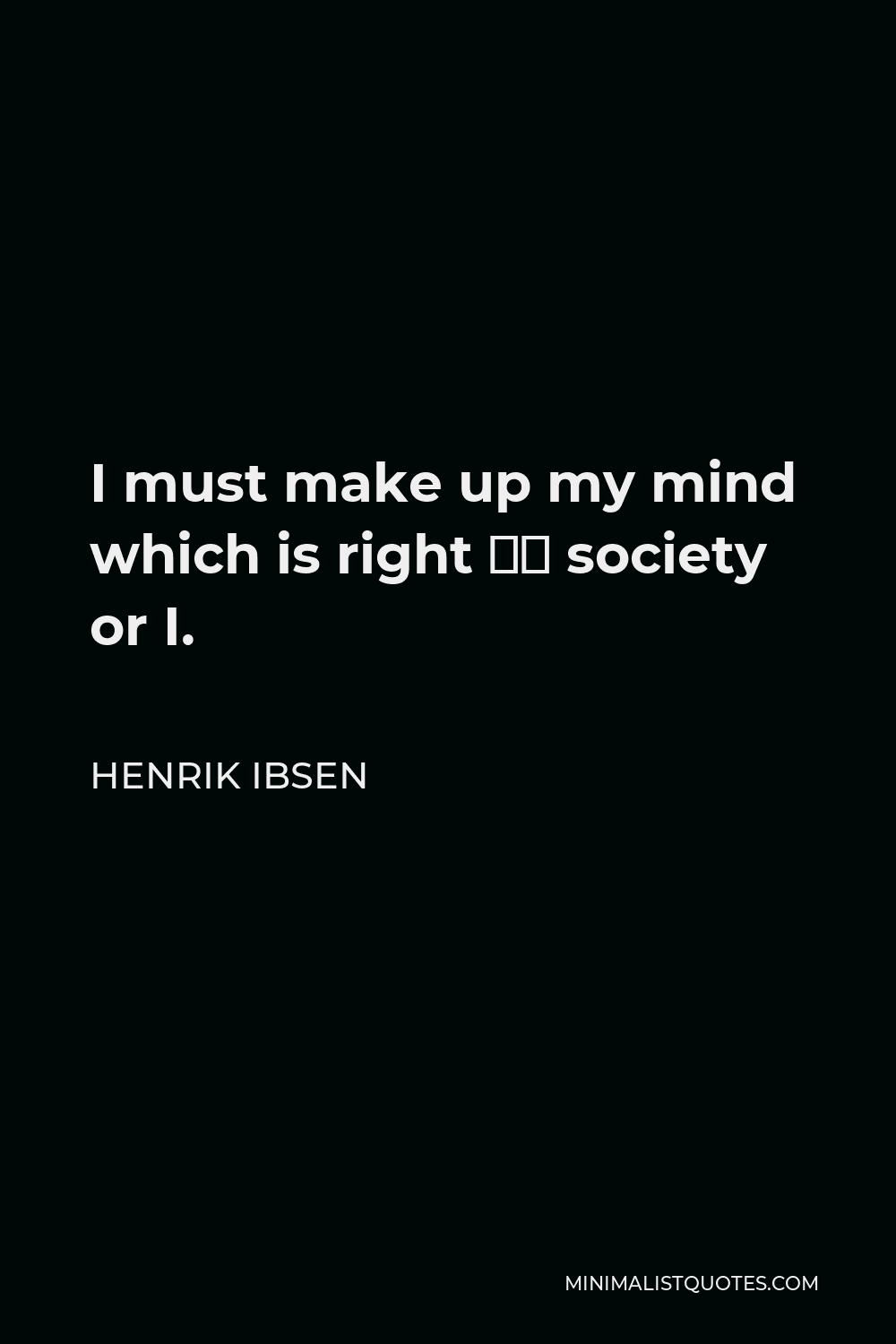
I must make up my mind which is right – society or I.
HENRIK IBSEN -







Take the life-lie away from the average man and straight away you take away his happiness.
HENRIK IBSEN -







Almost everyone who has gone to the bad early in life has had a deceitful mother.
HENRIK IBSEN -





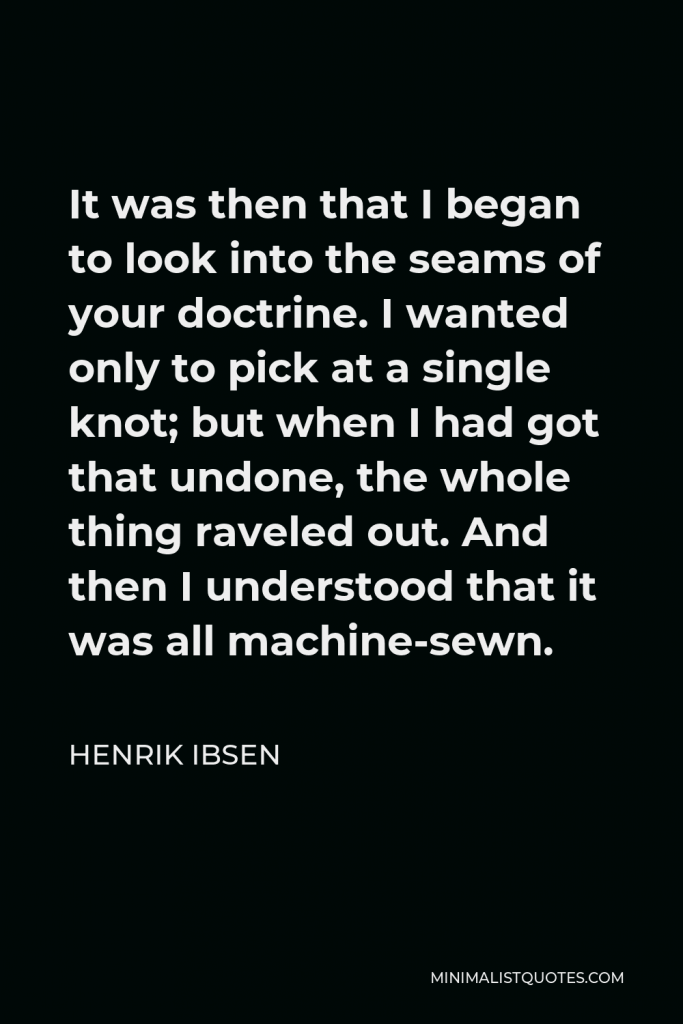

It was then that I began to look into the seams of your doctrine. I wanted only to pick at a single knot; but when I had got that undone, the whole thing raveled out. And then I understood that it was all machine-sewn.
HENRIK IBSEN -





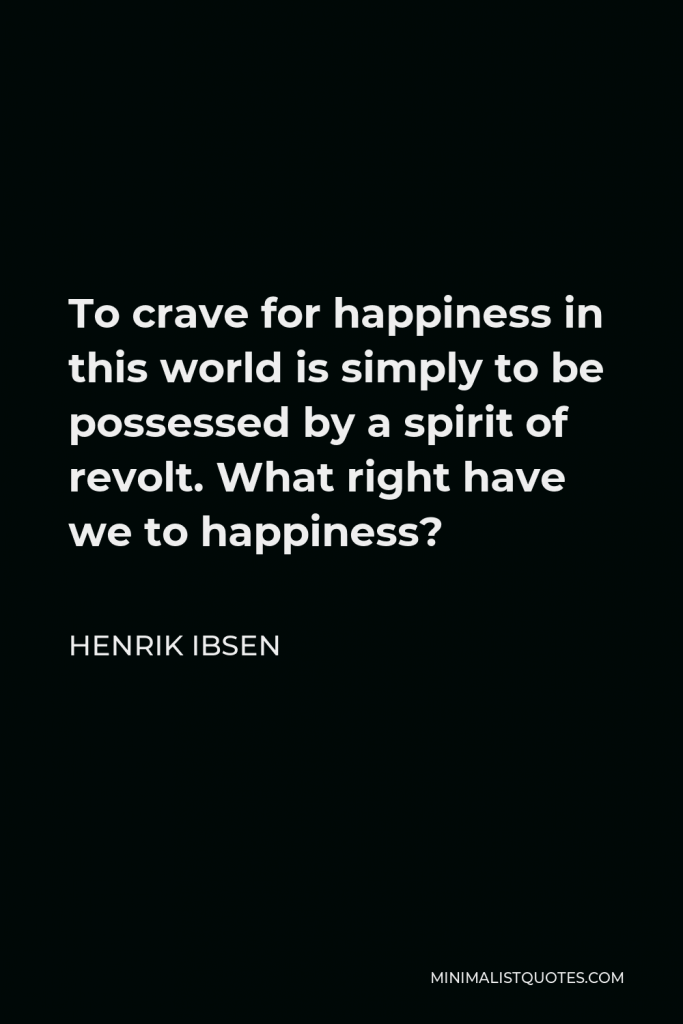

To crave for happiness in this world is simply to be possessed by a spirit of revolt. What right have we to happiness?
HENRIK IBSEN -






Before I write down one word, I have to have the character in my mind through and through. I must penetrate into the last wrinkle of his soul.
HENRIK IBSEN -





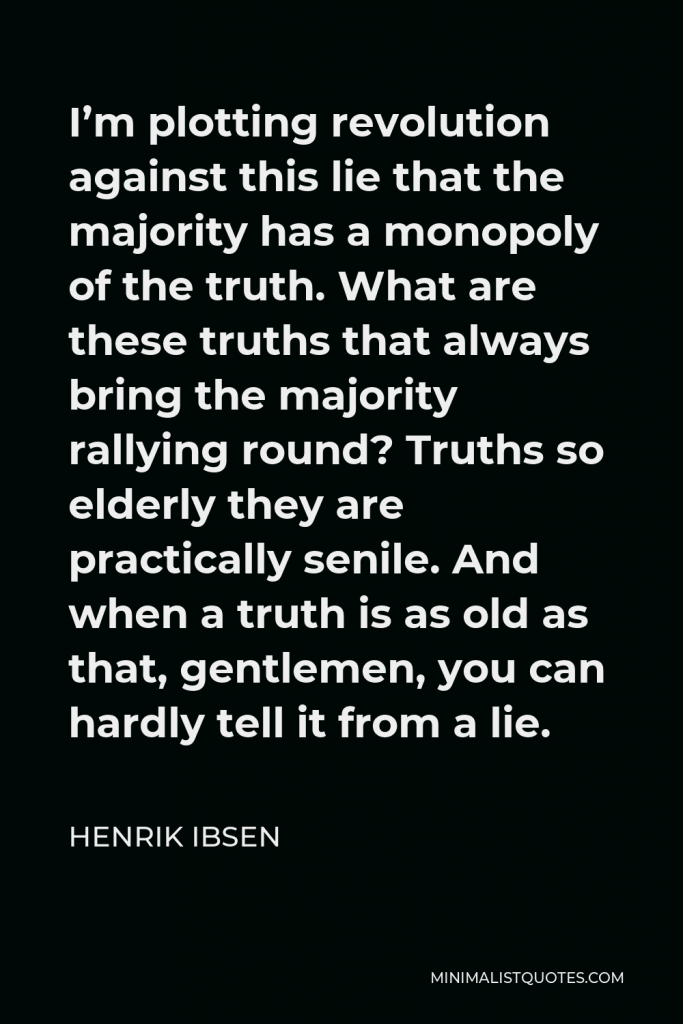

I’m plotting revolution against this lie that the majority has a monopoly of the truth. What are these truths that always bring the majority rallying round? Truths so elderly they are practically senile. And when a truth is as old as that, gentlemen, you can hardly tell it from a lie.
HENRIK IBSEN -







Poetry is to hold judgment on your soul.
HENRIK IBSEN -





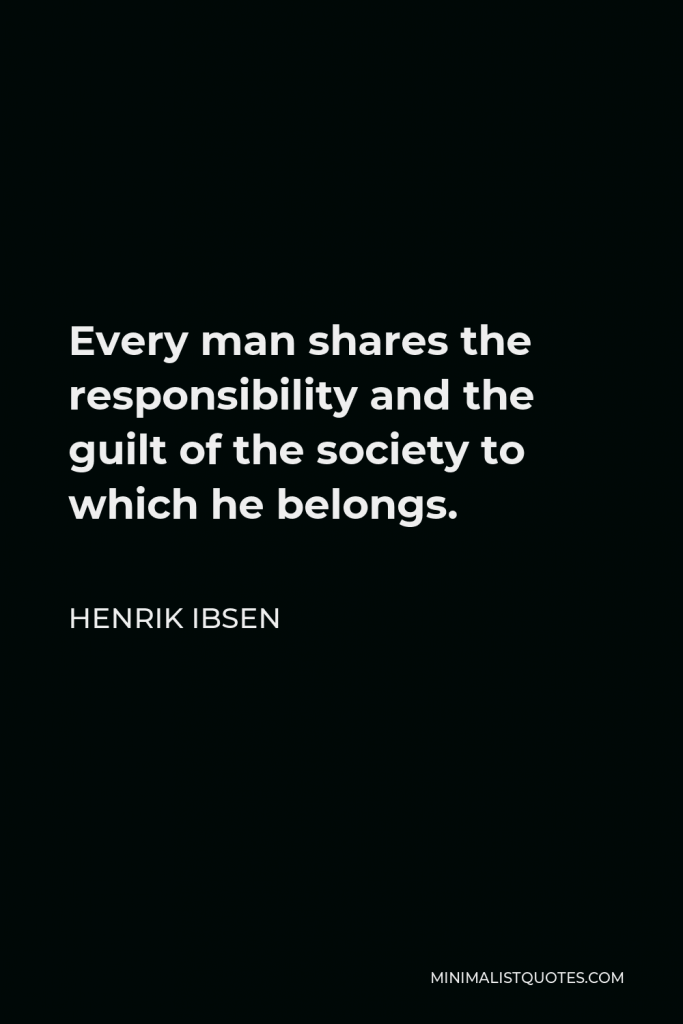

Every man shares the responsibility and the guilt of the society to which he belongs.
HENRIK IBSEN -





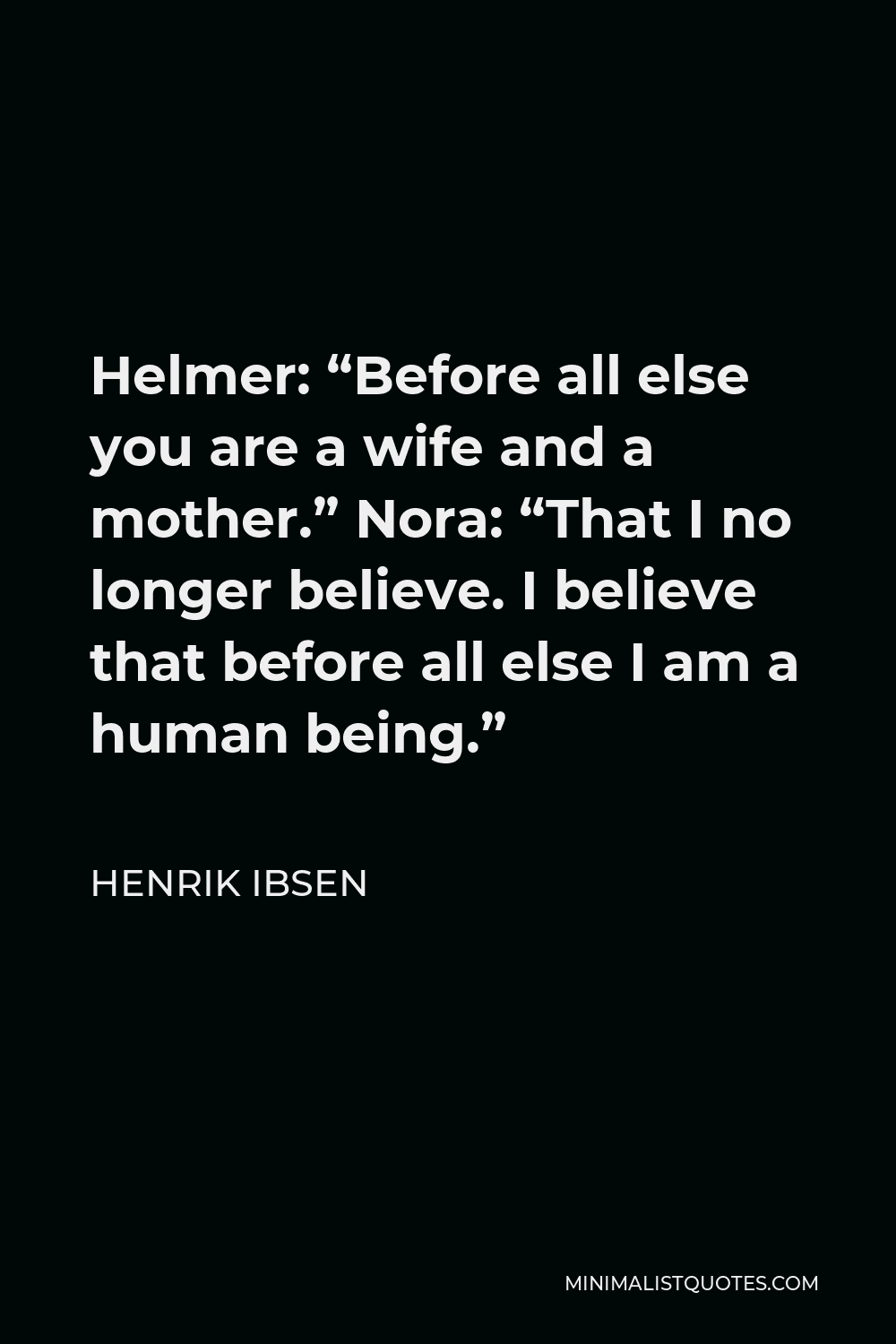
Helmer: “Before all else you are a wife and a mother.” Nora: “That I no longer believe. I believe that before all else I am a human being.”
HENRIK IBSEN
